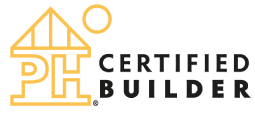Building a home is probably one of the biggest investments you’ll ever make, so you’ll want to know where to put your money to get the most value for your investment. Here are eight areas to consider:
Building a Quality Custom Home
What You Need to Know
One of the reasons I like Open Book is the complete transparency contractors share with their clients. If you are contemplating an Open Book (also known as Cost Plus) agreement, these are types of costs you should see in the budget.
Building a custom home is a bit like buying a new car, right? Not exactly. If you asked a car dealer how much he charges per pound, you’d get some very strange looks. Of course, there is some correlation between the cost of the car and its weight, but not significant enough to prompt that question. We all know car dealers don’t sell by the pound.
Contracts without a fixed price, part 1
Cost Plus, with or without GMP, also known as Open Book
Cost Plus with No Gross Max Price (GMP)
Cost Plus with No Gross Max Price (GMP), commonly called "Cost Plus," is a contract method with no fixed price. Essentially, the builder is saying: "I'll build your house, give you every option you want, and you (the owner) agree to pay for the material and labor cost PLUS a fee. The fee embodies the contractor's profit and overhead. The contract should specify which project costs will be charged and what will not. For instance, if your house is wood-framed, you would expect to pay for the labor and framing material to build the walls. These are direct costs and are easy to understand. But you may not expect to see and pay for indirect costs such as the builder's supervision to manage the framer and coordinate with other trades.
Contracts without a fixed price, part 2
Shared Savings
Shared savings is something to consider when approaching an open book agreement. Most contractors will understand their fiduciary responsibility to the owner and will act responsibly with spending the owner's money. But to ensure the process is adequately incentivized, the owner and contractor sometimes agree to share the savings on the project. Essentially, they agree on an initial budget, and if the project ends up being less than the budget, the savings are shared.
Part 1 about Fixed Price Contracts
Last time, we reviewed some important elements of any construction contract. Don’t forget that a detailed Scope of Work is essential to setting the proper expectations with your contractor.
Now let’s go through the types of contracts that you may use. Contracts can be lumped into several different types: 1- Lump Sum, (or Fixed Price), 2- Cost Plus (with or without a Gross Max Price, or GMP), and then there are hybrids such as a design-build or design-assist that starts as a Cost Plus and then converts to a Fixed Price. So let’s start with the one most used and easiest to understand:
Part 2 of Fixed Price Contracts, Allowances
As a customer, you may want to know how much something costs the builder. With a Fixed Price contract, generally, the Owner doesn’t have the contractual right to this information, and thus, the contractor will generally not share that info. Sometimes, owners want to know the cost of items, so after a quick “Google search”, they think they have the answer. This is not necessarily the case.
Choose a builder you like, trust, and respect
"If a builder has a good reputation, does it really matter if I like him?”
Yes, it matters. Don’t sign a contract with a builder you don’t like, trust, or respect. If you do, you could be headed for trouble.
Why? Because this is a long-term relationship and a long-term relationship with someone you don’t like, trust, or respect can be challenging, frustrating, and more than disappointing.
What makes Choice Builders different?
Making the choice to build a custom home can be one of life’s most rewarding adventures. Without the right information, it can also be filled with unforeseen problems and delays. With such an important investment, you deserve to have the best possible experience in your home building process. But how do you decide who will be the best builder for you?
Unfortunately, no, it's a terrible way to compare houses
Cost per square foot pricing is a terrible way to compare houses since it doesn’t consider any of the unique features and finishes of your home. As a simplified example, let’s say that a 1,000 square foot (SF) home costs $150,000. That makes it $150/SF. But what’s included in that? We don’t have enough information to know. There are so many variables that affect the cost of a home. For instance, does the home have any carpet, or is it tile? There is a large price difference between these two.
Act according to your values in every part of your life
In February 2020, Roger Thomas was a featured guest speaker on the Live Your Light podcast. The podcast focuses on spiritual and practical tools to help people design the life of their dreams. The show is hosted by Emily K. Thomas, a transformational coach, speaker and entrepreneur, who is on a global mission to help people align their vibration, consciously create new thoughts, forge new beliefs and create new outcomes in life.
A contract can help set expectations on both sides
When you are sitting down with your contractor to finalize the home you are building, they will most likely bring a contract for you to sign. Many folks will sign the contract without really understanding it. This is a BIG deal as you need to know what you are legally obligating yourself to. What some people don’t understand is that if a lawful contract is signed in good faith, they are bound to it and the contractor has the right to sue you if you break, or breach, the agreement. (Likewise, you can sue the contractor if he breaches).
How much is a free estimate worth?
There is a long-standing expectation in this industry that all contractors should give free estimates. As a result, little work actually goes into the initial estimate. Herein lies the problem. Some contractors guess an estimate or make a low bid to get their foot in the door. As a result, the consumer chooses the low estimate because he or she trusts that the contractor actually put a lot of time and energy into quoting their project. But is the estimate really free? Seriously, who works for free?
How to find the right contractor for your project
When looking for the right contractor for your unique project, there are many things to think about. Although price is important, it shouldn’t be the primary reason to choose a contractor. So, what should you ask your prospective contractor? Here is a list of questions for you to think about, make your own, and then ask your contractor candidates. The most important thing is to trust your instincts and choose the contractor that you feel comfortable communicating with and spending the next 4-6 months working with.
At Choice Builders, we have over 30 years of experience in the construction industry. We can take your visions and turn them into reality. From small homes to larger design build projects, we’ll always get your project completed right and in a timely manner. When you hire our professional team to complete a project for you, we’ll guide you through our 5-step process that’s easy, clear, and highly effective.
The custom home building experience
If you ask someone who has recently built a custom home, you may hear a horror story about their experience. Perhaps four out of ten people will say their experience was “fair,” and only one in ten will say their experience was “great.” My aim is for you to be in the group that has a great experience building your new luxury custom home.
A well-planned project can make winter building possible
Cedar City has relatively minor winters and we can usually build all year long. Building in the winter can be slightly more expensive since the home needs to be heated during construction to ensure the drywall texture and paint cures without freezing. And when pouring concrete, we must use special thermal blankets to cover the concrete until it cures.
Energy efficiency is a cornerstone of our philosophy
Building homes isn’t just about creating something new and innovative; it’s about helping our customers realize their dreams while protecting the environment and enhancing the community in which they live and work. That’s why energy efficiency is a cornerstone of Choice Builder’s business philosophy.
Choice Builders is proud to offer new homes that have earned the ENERGY STAR® label. The ENERGY STAR label means that your new home has been designed and built to standards well above other homes in the market today. It means better quality, better comfort, and better durability. It also means that your new home is a better value for today, and a better investment for tomorrow. The ENERGY STAR label gives you the peace of mind that your home has undergone a better process for inspections, testing, and verification to ensure that it meets strict requirements set by the U.S. Environmental Protection Agency (EPA). ENERGY STAR certified homes are better because they are designed and built to provide homeowners:
You can't stumble into building green
As soon as Kermit the Frog sang “It’s Not Easy Being Green” on national T.V., this phrase entered our pop culture and has been used and overused ever since. But, it does fit with the topic of Green Building and Greenwashing. Green Building is synonymous with sustainable or environmental building. Whereas greenwashing is merely jumping on the bandwagon and using keywords & tricky phrases so marketers can make something appear to be environmentally friendly when it’s actually not.
A home built using common sense
Most people think of sustainable homes in one of two ways: The first, it’s an elaborate process of using unusual alternative building principles to make your home “off the grid”. And that sustainability is only for hard-core environmentalists do who suffer inconveniences for the sake of the environment. That you use things like dirt and straw bales and other unconventional building methods.
A home reflects who you are and what you value
As I sat down to write a few words, I read through a few of my saved articles for inspiration, and this article from Oprah’s website written by Winfred Gallagher really struck me. One quote in particular:
“We worry a lot about how our homes look, but how they make us feel, emotionally and physically, is far more important. That costly renovation or those silky sheets matter less than whether our living spaces nourish who we are, buffer us from stress, and provide opportunities both for privacy and for socializing with family and friends.”
Indoor air can even be of higher quality than outdoors
One of the great things about Southern Utah is the wonderful outdoors. There are so many things to do and see…they literally beckon to you to head out. Those first few steps in that clean, crisp air feel so remarkably good. And then we return to our home and the difference in the air is notable….but should it be? Wouldn’t it be great if our houses had that same high-quality fresh air we were just walking in? Well, it can.
The designer, right? No!
“Which comes first?” is a question that must be answered before you start the custom home building process. While the answer may seem obvious, it’s important to know the right answer to avoid problems from the beginning. The designer comes before the builder, right?
Wrong! Read on...
Systems designed specifically for your home
Our houses are very comfortable houses to live in. When we're designing our houses, we pay attention to the heating and the cooling system. We don't use general rules of thumb to decide how big or how small heating and cooling should be. We design the system specifically for the house. We take into account the insulation, the windows, the solar exposure, all of these things to make sure that we're delivering the right amount of heat or cooling to each and every room.
Your home: Easy to live in and easy to visit
Your home is a safe haven. A place to be with friends and family, to feel snug and secure, protected from weather and sometimes the world. But what truly makes your home safe? If you’re alone at home with an injury or if you fall, how safe do you feel? There are specific design elements that can be used in your home to make it safer, easier to live in, and more convenient. It’s called Universal Design, also known as Aging-in-Place.
Hiring a builder based on bids is incomplete at best
One of the ways to go about designing and building a custom home is the design-bid method. The design-bid approach is when homeowners first find an architect/designer and then find their builder after the plans are done. Or, a homeowner could purchase an online pre-made plan, then search for a builder. Usually, the homeowner sends the plans out for competitive bid by two, or three, or even more builders.
Let’s Get Started!
Your Dream Home Awaits.
The Choice Builders logo and choicebuildersgroup.com is a Registered Trademark of Choice Builders, LLC.









































